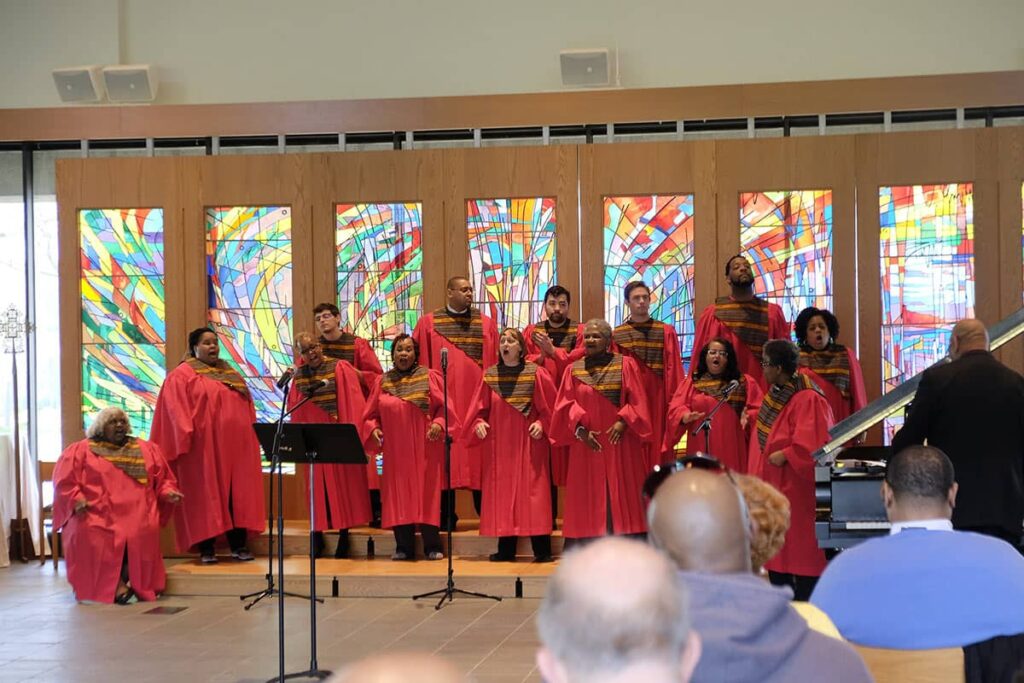Statement Preface
The faculty of LSTC expresses our commitment to fostering an inclusive and loving community based on the teachings of Jesus Christ. Our faith calls us to love all individuals, regardless of their backgrounds, experiences, or identities, embodying the principle that everyone is created in the image of God. This commitment is not about politics, but about living out the core values of empathy, respect, and dignity that we believe are essential for a thriving society. By opposing any form of rhetoric or action that might marginalize or demean others, we reaffirm our dedication to creating a safe and welcoming environment for everyone in our community.
At the heart of our mission is our commitment to public church theology, which forms the foundation of our understanding of what God calls us to do and be in the world. This theology emphasizes that our faith should not remain confined to the church but must actively engage with the broader society. We believe that as a public church, we are called to advocate for justice, promote peace, and offer compassion, reflecting God’s love in tangible ways.
LSTC Faculty Statement
We, the faculty of LSTC, wholeheartedly affirm our school’s vision: “to build up the Body of Christ and work for a world of peace and justice that cares for all of creation.” This distinctive public vision undergirds our teaching, advising, and scholarship, and we believe it is central to our collective mission within the LSTC community.
As we acknowledge the new presidential administration at the national level, we are mindful of the many challenges to our commitments and the values we hold dear. The new president has demonstrated a pattern of rhetoric and actions that express disdain for many, mainly targeting individuals based on religion, race, ethnicity, sexuality, gender, ability, and national origin. We recognize that this environment may pose real threats to members of the LSTC community, and especially our students.
Considering these concerns, we feel compelled to publicly voice our existing institutional commitments that inspire our work against potential harm. Remaining silent in the face of such challenges is a form of complicity, and we reject this response with every fiber of our being. We follow Christ’s command to love our neighbors without exception.
Our commitment to a pluralistic democracy grounded in truth and justice compels us to teach and preach against White Christian Nationalism, exposing it as a dangerous ideology that undermines our shared values and humanity. LSTC pledges to continue embodying ecumenical and interreligious relations based on deep understanding, mutual respect, and cooperation for the common good, for example, in its work on Christian-Muslim Engagement.
Our dedication to anti-racism, exemplified through LSTC’s Anti- Racism Transformation Team, drives us to pursue policies and practices that embody diversity, equity, inclusion, and justice.
These principles are woven throughout our Public Church curriculum, empowering students to embody anti-racist commitments in their ministry leadership.
As a part of LSTC’s commitment to anti-racism, we are particularly obligated to uplift and support our international students, who may be increasingly vulnerable in a national climate that targets those here in the United States from other countries, even when here with proper visas and documentation.
Our identity as a Reconciling in Christ seminary fuels our steadfast support for LGBTQIA+ members of the LSTC community. We express this commitment through our teaching, advising, and the hosting of significant events, such as the Queer Intersectionality Symposium.
Our commitment to environmental justice is integral to our faith, compelling us to care for all creation. We acknowledge the urgent threats climate change poses, particularly to marginalized communities disproportionately affected by its impact. As a community, we prioritize sustainability in our practices and pedagogy, advocating for ecological justice policies. In this endeavor, we seek to equip our students to become visionary leaders in environmental stewardship. We foster an understanding of the interconnections between social justice and our shared responsibility to protect the earth for future generations.
Governments that hold a preferential option for the very wealthy directly counter the church’s public commitment to seek the flourishing of all members of our communities, especially those economically struggling. As we work for economic security and justice in our society, we recall as inspiration the Bible’s ‘preferential option for the poor’ and Jesus’ claim that by serving those who are hungry, thirsty, impoverished, sick, and imprisoned (Matt 25:40), we serve Christ.
Undergirding our whole enterprise, we acknowledge and support our collaborative role as an educational institution with a functional government oversight of education, including accreditation processes, oversight of equity (Title IX), and federal loan opportunities supporting student’s educational goals.
These commitments are core to the institutional values we hold together at LSTC. Yet, we also desire to remain open to learning from others and to be in dialogue with those who hold perspectives different from our own. As one of our core values, we commit to listening to understand the other and to seek, where possible, paths to deescalate the polarization that characterizes so much of our public life at this moment.
We ask that the board officially join the faculty in making a bold and public declaration rooted in our Christian identity and moral commitments as a community. In this critical moment, we reaffirm our values, standing firmly for all who embrace the call of being a public church.
The LSTC Board of Directors voted unanimously to affirm this faculty statement on February 20, 2025.



